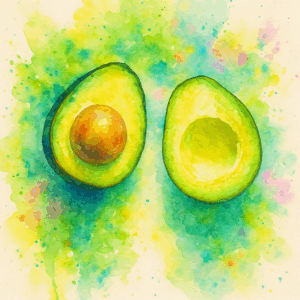The above audio sample and transcription is from a radio advertisement. We do not own the content. We are not paid for this content, it is for educational purposes. The above audio sample and transcription is from a radio ad. We do not own the content. We are not paid for this content, it is…
Start quiz, type what you hear, then join the conversation.
Did you find this one challenging or easy? Did you hear something diffferent? What surprised you? What levels did you complete? Comment below and share what’s opening up for you with this quiz.
chipolatas
I was in the car the other day and an E.Leclerc ad came on, followed shortly by a Carrefour. It was a lot of numbers and a lot of speech. All in a short amount of time. Try it today.
What’s opening up for you with this clip?
The snippet in English
What does “ceux qui” mean?
“ceux qui” = “those who / those that” (masc. plural). Demonstrative + relative “qui” (subject of the verb).
Pronunciation: [sø ki]. Variants: celles qui, celui/celle qui.
Contrast: use que when it’s the object → ceux que.
Ceux qui arrivent tôt gagnent les meilleures places. (Those who arrive early get the best seats.)
Pour ceux qui n’aiment pas le café, il y a du thé. (For those who don’t like coffee, there’s tea.)
Ceux que j’aime restent. (The ones I love stay.)
Culture: a catchy opener in ads/PSAs to group people and create contrast: Il y a ceux qui… et ceux qui….
What does “allumer” mean?
allumer = turn on / light, power up, ignite. Opposite: éteindre. Pronunciation: [a-ly-mé].
Core uses: allumer la lumière / la télé / l’ordi (turn on the light/TV/computer); allumer un feu (light a fire). Reflexive: La vitrine s’allume à 18h (the storefront lights up at 6 pm).
Figurative & slang: allumer quelqu’un (lead someone on / tease); se faire allumer (get chewed out).
Quick traps: use allumer (not “ouvrir”) for devices/lights; for people, allumer quelqu’un. Past participle: allumé(e)(s).
Mini-examples:
Peux-tu allumer la lumière ? (Can you turn on the light?)
Il a allumé un feu dans la cheminée. (He lit a fire in the fireplace.)
Elle l’a un peu allumé, puis elle est partie. (She kinda led him on, then left.)
Je me suis fait allumer par le boss. (I got roasted by the boss.)
What does “petit bois” mean?
petit bois = kindling (small sticks/twigs for starting a fire), not “little wood.”
Pronunciation: [p(ə)-ti bwa]. Grammar: masculine, usually partitive → du petit bois.
Core: ramasser/mettre du petit bois; ajouter du petit bois au feu.
Example: On n’a plus de petit bois pour allumer le feu. (We’re out of kindling to start the fire.)
Figurative: réduire en petit bois = smash/dismantle (in debate/sports).
Example: Leur défense a été réduite en petit bois. (Their defense was torn to pieces.)
Culture: common in home fireplaces, camping, and winter ads—pairs naturally with allumer/éteindre le feu.
What does “les sourcils” mean?
les sourcils (eyebrows). Pronunciation: [suʁ.si]. Singular: un sourcil (an eyebrow). Don’t confuse with les cils (eyelashes).
High-value collocations: froncer les sourcils (to frown/furrow one’s brows), épiler les sourcils (to pluck eyebrows), des sourcils épais/fins (thick/thin eyebrows), un sourcil arqué (an arched eyebrow).
Culture/use: beauty and fashion talk loves les sourcils; in body language, froncer les sourcils signals doubt or disapproval.
Mini-examples: Il a froncé les sourcils en lisant le contrat. (He frowned reading the contract.) Elle a des sourcils épais, très tendance. (She has thick eyebrows—very in right now.) Le maquilleur a redessiné ses sourcils. (The makeup artist reshaped her eyebrows.)
What does “moitié grillés” mean?
à moitié grillés (half-grilled / partly toasted). Usual form uses à; à moitié means “half/partly.”
Agreement: à moitié grillé / grillée / grillés / grillées (matches the noun).
Food use: des poivrons à moitié grillés (half-grilled peppers). du pain à moitié grillé (partly toasted bread).
Contrast: mi-cuit (half-cooked, often meats/desserts) isn’t the same as grillé. Avoid demi-grillé here.
What does “trichent” mean?
trichent (they cheat). Present tense of tricher.
Grammar: 3rd person plural. Noun: la triche / une tricherie. Person: un·e tricheur·euse.
Use: tricher à un examen (cheat on a test), tricher aux cartes (cheat at cards), tricher avec les chiffres (fudge the numbers), tricher sur son âge (lie about one’s age).
Nuance: tricher = break rules; tromper = deceive someone.
Mini-examples: Ils trichent depuis le début. (They’ve been cheating from the start.) Elle triche avec la vérité. (She bends the truth.)
What does “l’allume-feu” mean?
l’allume-feu (the firelighter). Masculine: solid or gel product used to start fires in stoves, fireplaces, or BBQs. Common compounds: un cube allume-feu, une bûche allume-feu, un allume-feu écologique.
Or: un briquet (a pocket lighter), une allumette (a match).
A winter/camping staple; sold in supermarkets and DIY stores. Packaging often stresses sans odeur, sans pétrole, écologique.
Passe-moi l’allume-feu, s’il te plaît. (Pass me the firelighter, please.)
On a pris des cubes allume-feu pour le barbecue. (We grabbed firelighter cubes for the barbecue.)
Je préfère un allume-feu écologique; ça fume moins. (I prefer an eco firelighter; it smokes less.)
What does “mais moi, perso” mean?
mais moi, perso = (but me, personally). Ultra-colloquial French filler to foreground your own take. perso is clipped from personnellement.
Culture/register: very spoken, casual, often younger speakers and social media. Signals mild contrast or polite disagreement without sounding heavy. In formal contexts, swap for pour ma part or personnellement.
Pragmatics: places “self” upfront, invites subjective opinion. Friendly, confessional vibe; too much can feel self-centered.
Variants: perso, je…; moi, perso…; franchement, moi… (more emphatic).
Examples: Mais moi, perso, je prends le train. (But me, personally, I take the train.) Perso, je trouve ça trop cher. (Personally, I find it too expensive.) Moi, perso, j’adore—mais je comprends qu’on n’aime pas. (Me, personally, I love it—but I get why some don’t.)
What does “silex” mean?
silex (flint). Pronunciation: [si-lɛks]. Masculine: le silex (the flint), plural des silex (unchanged in speech; both [si-lɛks]).
Core uses: un briquet à silex (a flint lighter), étincelles de silex (flint sparks), tailler du silex (to knap flint), un éclat de silex (a flake of flint).
Contexts: prehistory (stone tools, fire-making), geology, camping/outdoors. In modern speech, evokes rugged, primitive methods.
Near terms: pierre à feu (firesteel), allume-feu (firelighter product), briquet (lighter).
Mini-examples: Il a allumé le feu avec du silex et de l’amadou. (He lit the fire with flint and tinder.) On a trouvé des éclats de silex près du site. (We found flint flakes near the site.) Mon vieux briquet à silex marche encore. (My old flint lighter still works.)
What does “chipolatas” mean? And “merguez”?
chipolatas (thin pork sausages) vs merguez (spicy North African lamb/beef sausages). Both are staples of the French barbecue/plancha scene.
Pronunciation: chipolata [ʃi-po-la-ta]; merguez [mɛʁ-gɛz]. Gender: une chipolata; une merguez. Plural: des chipolatas; des merguez.
Taste/seasoning: chipolatas (mild, herby—salt, pepper, sometimes thyme); merguez (bold—harissa, cumin, paprika).
Cooking/use: grill or pan-fry; serve in un sandwich (baguette + mustard) or with semoule/couscous for merguez. Classic summer combo: chipos & merguez at family picnics.
Register/culture: merguez signals Maghrebi influence in French food; chipolatas feel “traditional” French BBQ. Pair with salade de pommes de terre, ratatouille, or frites.
What does “tous unis contre la vie chère” mean?
classic French campaign-speak. Tous unis contre… is a well-worn slogan frame used by governments and associations (e.g., Tous unis contre la haine).
La vie chère (high cost of living) is an old, loaded phrase in France—attested since the early 1900s and tied to protests like the 1911 émeutes de la vie chère. Today it surfaces in anti-inflation drives and overseas price-control policies (bouclier qualité-prix, trimestre anti-inflation).
So tous unis contre la vie chère reads as a straightforward public-interest slogan (unity vs. rising prices), not a wink to literature.
What does “modalités” mean?
Modalités means terms, conditions, or procedures—used to describe the specific ways in which something is done or applied.
Veuillez consulter les modalités d’inscription (Please check the registration terms).
It’s formal and administrative, common in official documents, legal contexts, and institutional communication.
🎙️ Why Learn with French Advertisements?
If you’ve ever wondered how to truly immerse yourself in French without being in France, look no further than the humble radio ad. These quick, high-energy clips are bursts of real-life language — fast-paced, full of cultural references, and packed with everyday vocabulary.
They’re perfect for sharpening your ear to the speed and rhythm of authentic spoken French. In just 30 seconds, you’ll encounter everything from slang to regional accents. And here on French IRL, we make it accessible.
Just like in our post on how to immerse in French when you’re not in France, it’s about building immersion into your life — not waiting for the perfect classroom setup.
And if you’ve been practicing daily with our listening practice clips or read about how we make the most of the learning space, radio ads are the next level: short, intense, and incredibly revealing of how French is used in everyday persuasion and humor.
So tune in, listen up, and let a few seconds of French advertising do what textbooks can’t — bring the language to life.
Find all Advertisement Clips here.
🎙️ Why Learn with French Advertisements?
If you’ve ever wondered how to truly immerse yourself in French without being in France, look no further than the humble radio ad. These quick, high-energy clips are bursts of real-life language — fast-paced, full of cultural references, and packed with everyday vocabulary.
They’re perfect for sharpening your ear to the speed and rhythm of authentic spoken French. In just 30 seconds, you’ll encounter everything from slang to regional accents. And here on French IRL, we make it accessible.
Just like in our post on how to immerse in French when you’re not in France, it’s about building immersion into your life — not waiting for the perfect classroom setup.
And if you’ve been practicing daily with our listening practice clips or read about how we make the most of the learning space, radio ads are the next level: short, intense, and incredibly revealing of how French is used in everyday persuasion and humor.
So tune in, listen up, and let a few seconds of French advertising do what textbooks can’t — bring the language to life.
Find all Advertisement Clips here.
What is opening up for you?
Comment below with the words you thought you heard, where you struggled, where you surprised yourself, or what you thought about this clip. Every little bit inspires other learners, thank you for being that inspiration to others on their French fluency journey!
The above audio sample and transcription is from a radio advertisement. We do not own the content. We are not paid for this content, it is for educational purposes. The above audio sample and transcription is from a radio ad. We do not own the content. We are not paid for this content, it is…
Start quiz, type what you hear, then join the conversation.
Did you find this one challenging or easy? Did you hear something diffferent? What surprised you? What levels did you complete? Comment below and share what’s opening up for you with this quiz.








